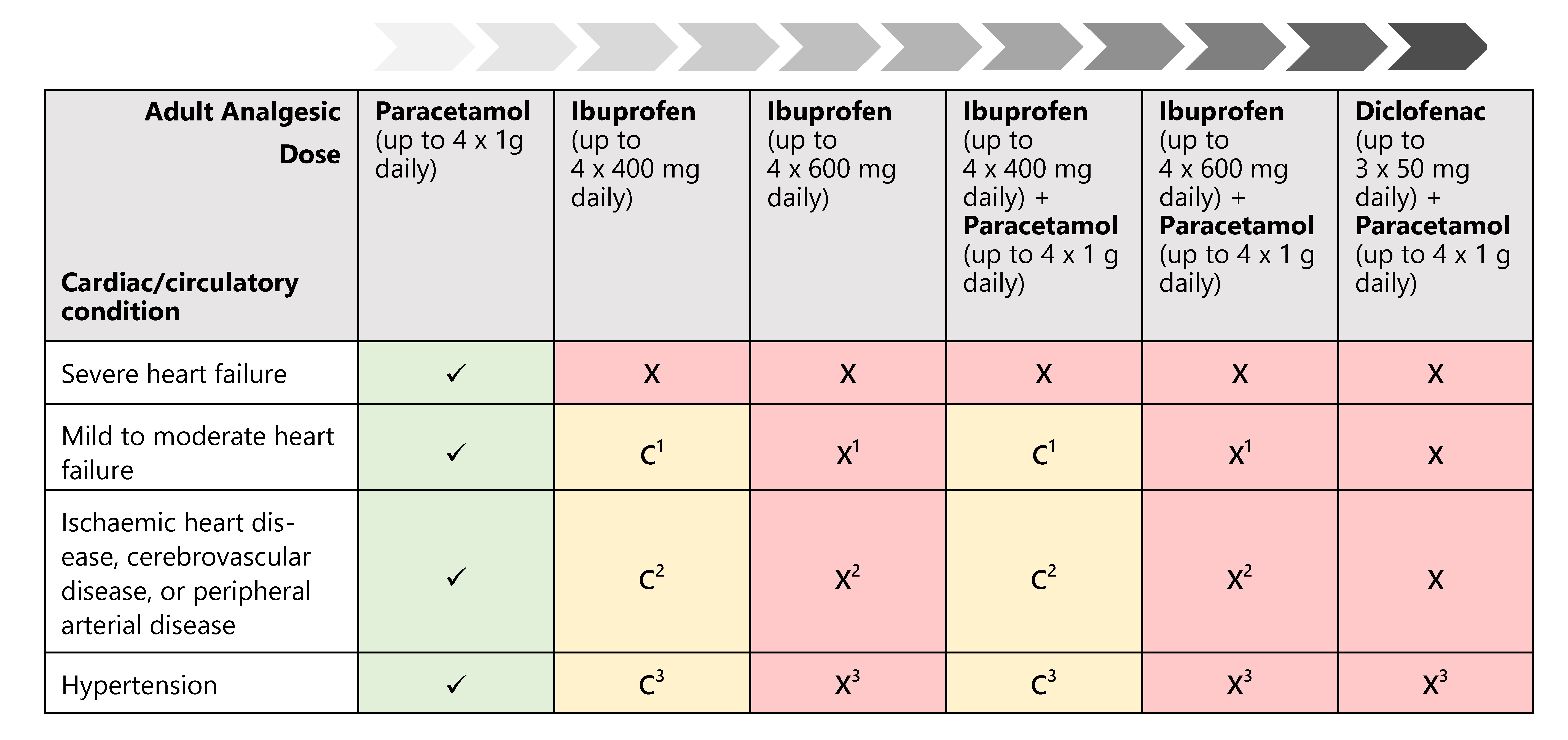Cardiac/circulatory conditions

Notes
- Prescribe ibuprofen with caution to people with cardiac impairment or mild to moderate heart failure (NSAIDs may impair renal function). Do not prescribe NSAIDs in severe heart failure.
Prescribe ibuprofen up to 1200 mg per day as a first-line option (note that this is a lower dose than the 4 x 400 mg per day regimen recommended in the BNF for dental pain). For higher doses liaise with the patient’s GMP.
Monitoring of blood pressure, renal function, and features of heart failure may be required 1–2 weeks after starting or increasing the dose of an NSAID. Liaise with the patient’s GMP to discuss.
If in doubt about the severity of the patient’s heart failure or appropriate analgesics, consult with their GMP. - Prescribe ibuprofen with caution to people with cerebrovascular disease, ischaemic heart disease, peripheral arterial disease, or risk factors for cardiovascular events (for example, hypertension, hyperlipidaemia, diabetes mellitus, smoking).
Prescribe ibuprofen up to 1200 mg per day as a first-line option (note that this is a lower dose than the 4 x 400 mg per day regimen recommended in the BNF for dental pain). For higher doses liaise with the patient’s GMP.Monitoring of blood pressure, renal function, and features of heart failure may be required 1–2 weeks after starting or increasing the dose of an NSAID. Liaise with the patient’s GMP to discuss. - Prescribe NSAIDs with caution to people with hypertension (NSAIDs may impair renal function).
Prescribe ibuprofen up to 1200 mg per day as a first-line option (note that this is a lower dose than the 4 x 400 mg per day regimen recommended in the BNF for dental pain). For higher doses liaise with the patient’s GMP.
Monitoring of blood pressure may be required 1–4 weeks after starting long-term treatment or increasing the dose of an NSAID. Liaise with the patient’s GMP to discuss.
Diclofenac is not recommended in this guide for patients with hypertension due to cardiovascular risk.